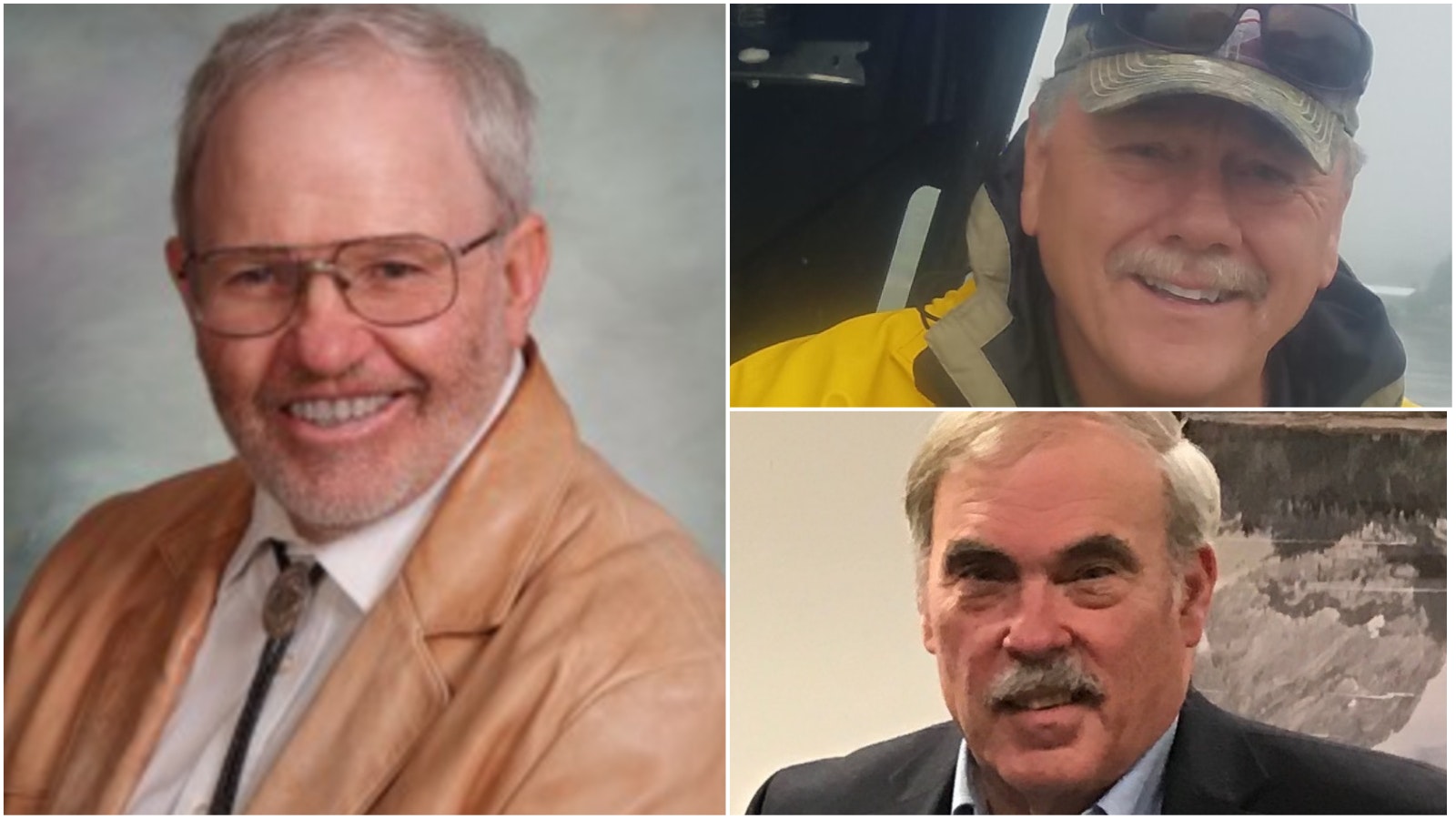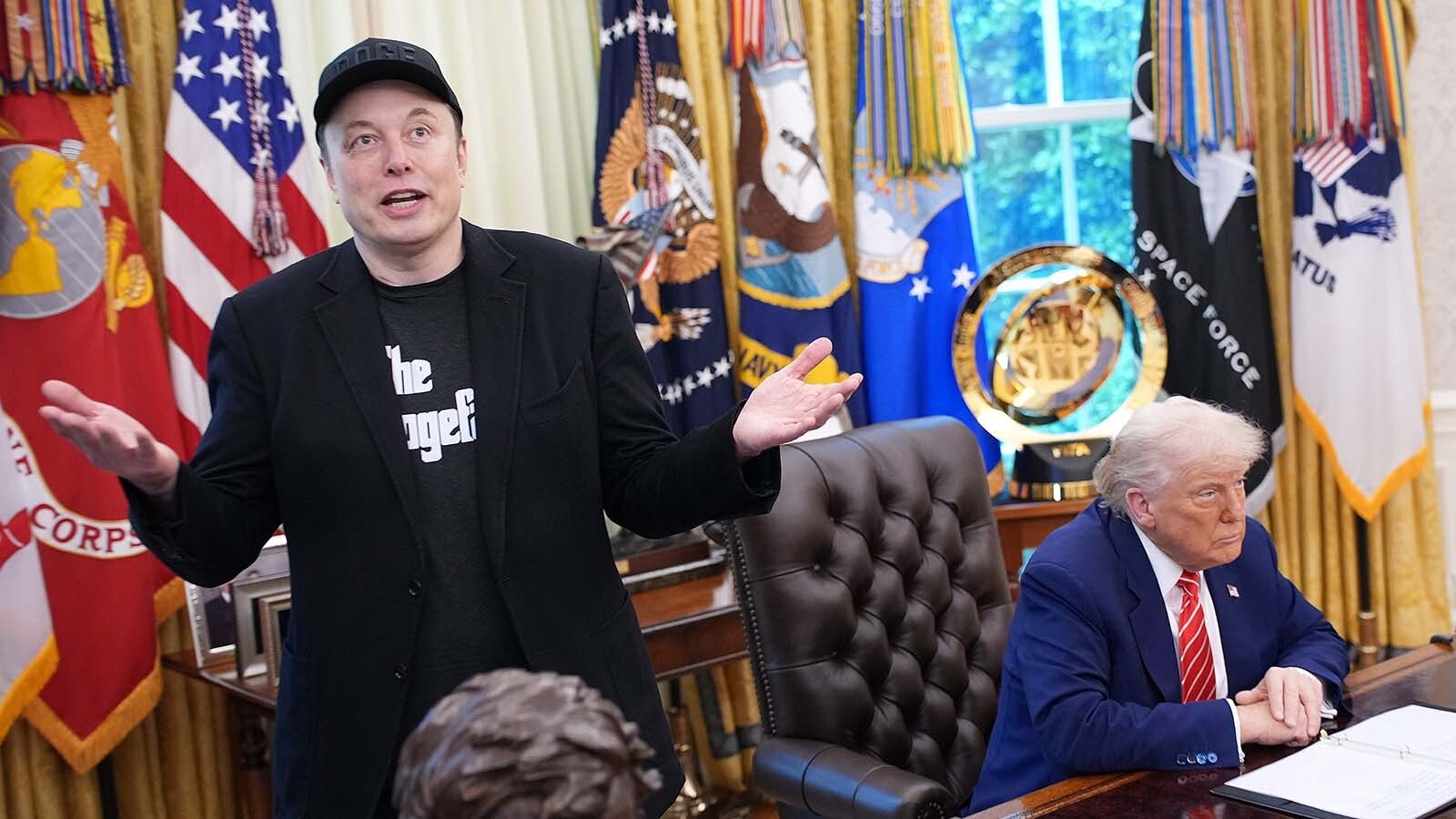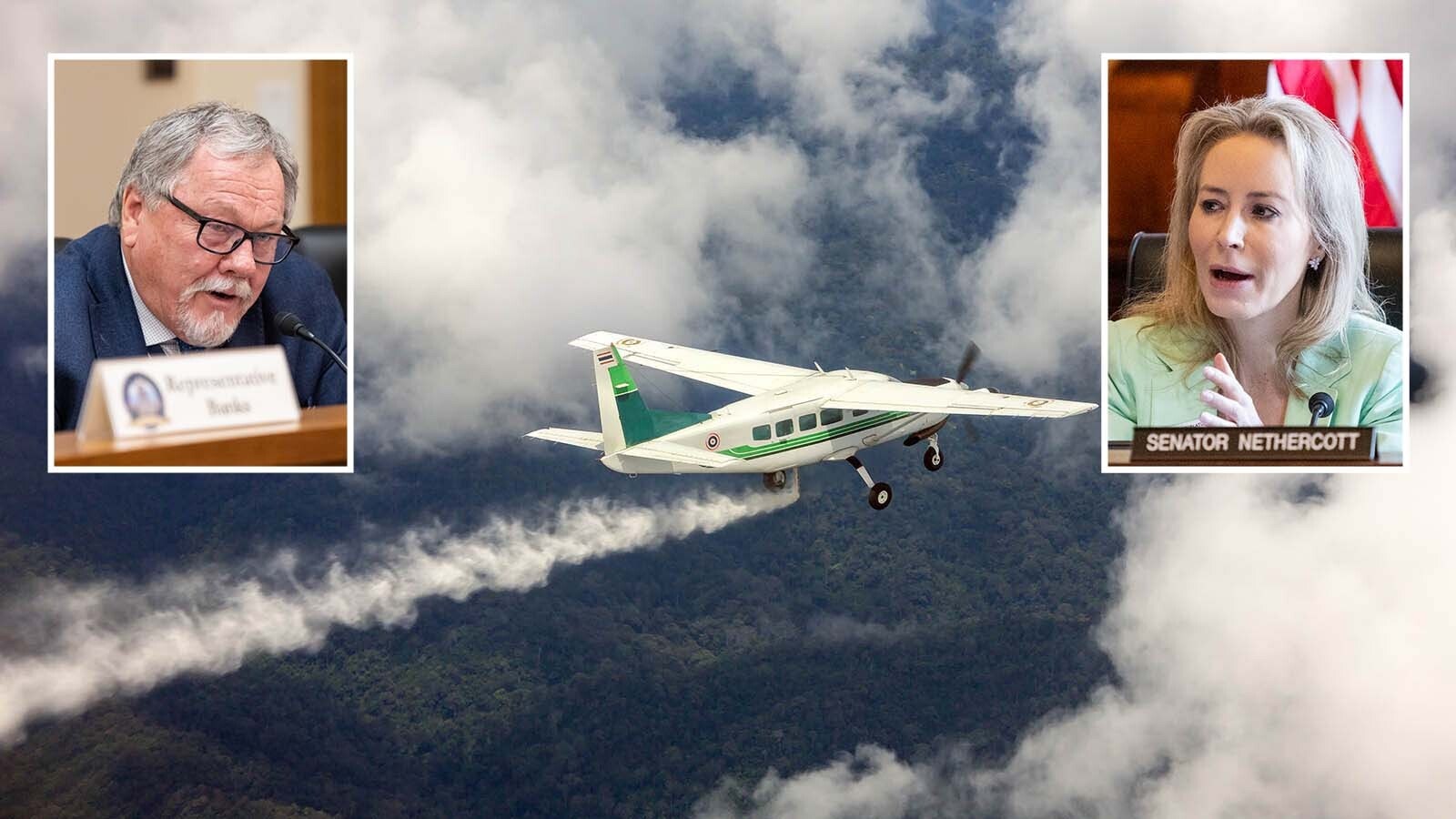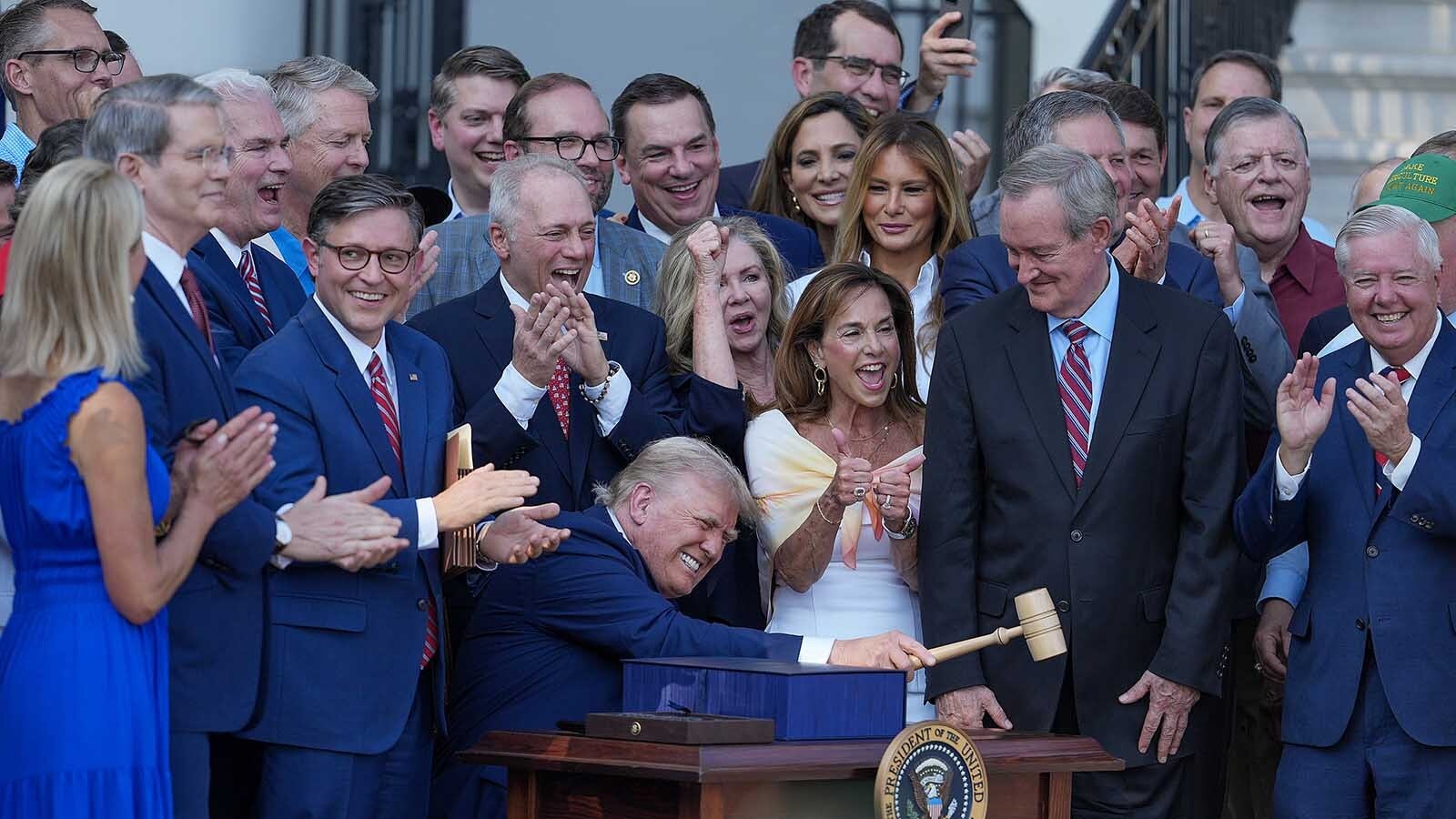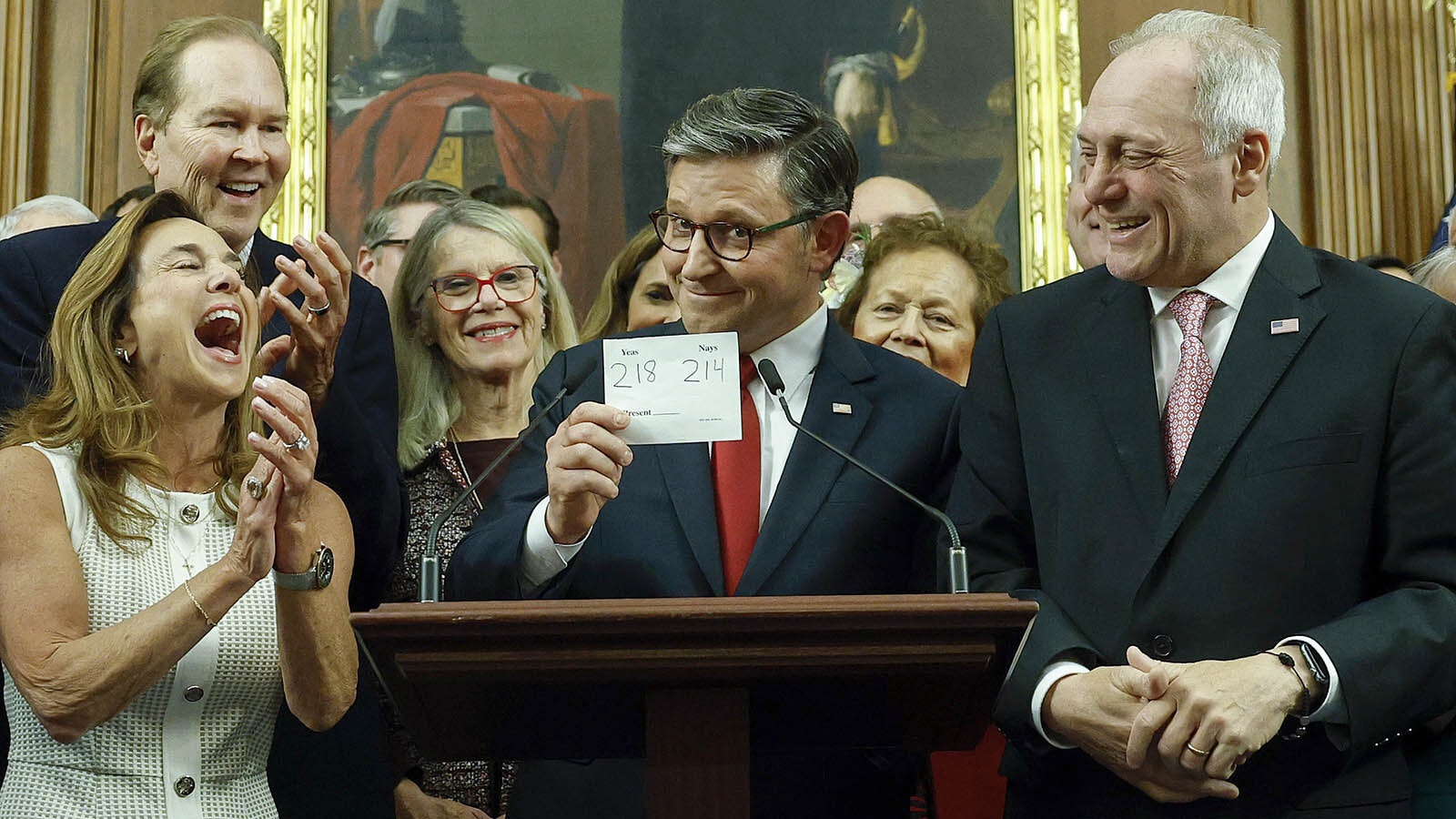House District 20 in Southwest Wyoming is in many ways a microcosm of the state, an area rich in mineral reserves, strong tourism and recreation industries and a booming housing market.
There are three Republican candidates running in the Aug. 16 primary from HD 20, incumbent State Rep. Albert Sommers, R-Pinedale, Bill Winney of Bondurant and Michael Schmid of La Barge.
Although Sublette and Lincoln counties are not experiencing housing shortages and cost of living increases at the level of neighboring Teton County, these two rural counties that make up HD 20 sit on the periphery of extreme growth and wealth. As a result of the Teton County housing crunch, many people buying homes in HD 20 communities and commuting to Jackson for work.
“We’re not in Jackson but it’s an issue we need to be concerned about because we’re seeing more and more population growth,” Sommers said. “Land prices have risen.”
Sommers said it is critical that the state find a way to reduce its residential property taxes. He would like an amendment made to the State Constitution to create a special classification for a property tax exemption for people 65-years and older, single homeowners and homesteaders.
But he also said this issue needs to be studied critically to determine the impact property tax cuts would have for the state’s revenue.
“What’s that going to cost the schools, local government?” he said.
Schmid said property taxes should be completely wiped out for the elderly and infirm, and for all other homeowners based on purchase-price value.
“Your property tax should not be based on what your neighbor paid in a hot market,” he said.
Winney ran for the House in 2020 as well, losing to Independent Jim Roscoe in the House District 23 race by 6% of the vote.
Winney said the state has a spending problem and is reluctant to do anything about it. With coal revenues likely dwindling further in the future, he finds the state “in serious trouble” because of its current spending levels, which he said could be reduced by around 10%.
A Navy veteran, Winney was also in charge of large-scale budgets while working as a program coordinator at the Pentagon in Washington, D.C. He mentioned how his department was forced to trim its budget during the last year of former President Ronald Reagan’s second term in 1988.
“Budgets had been going up and stopped going up,” he said. “You would have thought the world was caving in.”
Schmid said he would like to see fewer appointed officials in the Wyoming government and positions like the Wyoming Game and Fish commissioner elected by the people.
“Kind of like a fourth branch (of government),” he said. “They’re already partisan.”
Experience And Plans
Sommers is seeking re-election for a sixth term. With the Speaker of the House Rep. Eric Barlow, R-Gillette now running for the Senate, Sommers said he plans to run for this position if re-elected by the people.
“I’m really proud of the work I’ve done during my 10 years in the Legislature securing education funding, protecting local control, protecting the local economies of Sublette County. Prior to this year’s redistricting, HD 20 only included Sublette County.
Schmid had previously been represented by Rep. Evan Simpson, R-Afton in HD 21 and said he had already been considering running prior to redistricting.
“I decided the time is now,” he said.
Schmid was raised in Daniel and graduated from Pinedale High School as one of Sommers’ classmates.
“I’m a lot more conservative than Albert,” Schmid said. Schmid said the State of Wyoming is “highly conservative,” a political mindset he finds not represented well in the State Legislature, where he said many Republicans make unnecessary compromises on bills.
Sommers was ranked the 43rd least conservative member of the House out of 60 members by WyoVote.com.
He has received endorsements from the Petroleum Association of Wyoming and Wyoming Stockgrowers Association are endorsing Sommers.
“People see the value of my work in the Legislature,” Sommers said.
Schmid is a member of the Lincoln Country Republican Party. He is running for a precinct committeeman seat while also running for the state Legislature.
He supports the trigger ban on abortion that was passed last year but would not advocate for any stricter abortion regulation. The bill allowed exemptions for cases of rape or incest and when the mother’s life is put at risk by attempting to deliver a baby.
Sommers, a member of the Colorado River Basin Forum, said water is a critical issue that Wyoming should be more concerned about. He hopes to expand his leadership with the Basin Forum if re-elected.
The federal government recently asked Wyoming and other Western states to voluntarily reduce their use of Colorado River Basin water by 2 million to 4 million acre-feet to increase flows into lakes Mead and Powell, which are at critically low levels.
Sommers said more thought should be given to conserving water rather than maximizing the state’s guaranteed allotment through the 1922 Colorado River Compact. He also wants more dams built in Wyoming that would give the state more water storage capacity and wants the state to purchase more water rights.
“We need to get a hold of more water to make sure it’s ours,” he said. “Ultimately, the Compact will rule.”
Economic Drivers
When it comes to energy, Sommers said the state should support all industries, green and fossil fuels, but does want solar energy to be taxed at the same level as wind.
“The Legislature needs to enable all these industries to be successful,” he said.
Schmid made a career working in the oil industry. He believes the state should not move away from fossil fuels and would like to see more done to protect these industries from the rollercoaster, boom and bust cycles.
“The green energy push is taking it to oil and gas in Wyoming and making it more difficult to operate in … it’s making people give up,” he said. “Wyoming needs oil and gas.”
He said he supports a diverse economy “if it makes sense.”
Winney said green energy isn’t sustainable and he nation needs to refocus on fossil fuels. A strong nuclear energy supporter, Winney spent his career driving nuclear submarines. He said past nuclear disasters have all resulted from companies taking financial shortcuts and said an unfair stigma has been attached to nuclear production.
He is pleased with the nuclear plant planned to be built in Kemmerer, saying this production will lead to further economic growth through the construction of related infrastructure connected to the facility.
“You’ll need rail services, wires to carry electricity elsewhere,” he explained. “It’s important for the future of Wyoming energy.”
Winney has limited faith in electric cars after working with the same batteries in the submarines he captained. He said these batteries lose significant power when exposed to extreme cold temperatures, common in Wyoming.
“When the temperature goes down below 0, below -30, you’ve got a problem,” he said.
Sommers said increasing broadband internet in the state will be critical to Wyoming’s effort to diversify its economy.
“We need to support local economy by looking to the future,” he said.
As an example, Sommers brought up a Pinedale bike shop owner who sells and builds his own bikes. Sommers said the state needs to do a better job of recruiting small businesses like these.
“We need that kind of value-added all throughout the state,” he said.
But he also doesn’t have a problem with young people leaving Wyoming for other pursuits and opportunities, a phenomenon known as “brain drain,” as long as they come back in the future.
Wyoming’s Children
Winney has been attending the legislature since around 2005 and said it was his idea to integrate computer science into Wyoming public school curriculum, providing the idea to former State Sen. David Northrup, R-Cody.
Winney wants a larger budget for teacher salaries and cuts made to administrative pay, which he said will give a priority to the classroom over the front office. Winney mentioned how certain superintendents in Wyoming make more than $150,000 a year, yet it is the teachers who are directly responsible for influencing students. The state pays more than $1 billion a year in administrative salaries.
“We don’t have the right emphasis in education,” Winney said. “We need to treat teachers like professionals. There’s a whole set of skills that go into a classroom. It’s a teacher’s responsibility to recognize that this kid is two weeks behind and those children are two weeks ahead.”
Sommers voted in support of 2021 legislation that gives the state authority to grant three additional charter schools each year but said he would not support an increase to this yearly allotment.
“I want to see how that plays out,” he said. “I want to see what the benefits and issues are.”
When it comes to school of choice, Sommers said he does not support public funding being given to a student in the form of a voucher to use for private education. He believes that is unconstitutional. The Wyoming Constitution prohibits directing education dollars to “any person, corporation or community not under the absolute control of the state, nor to any denominational or sectarian institution or association.”
“How are we going to affect public education- that concerns me,” he said.
Schmid said he supports school of choice.
“I think every option should be available to parents to educate their children as they choose,” he said.
Sommers opposes school district consolidation.
“You lose that identity when you’re merged into a different district,” he said.
Although Winney said he considers Sommers a friend, he believes he could do a better job representing the district himself. Schmid wants people statewide to research their legislators’ voting records before casting a vote in the next election.
“A lot of people talk about voting records,” he said. “I’d like to encourage people to take the time to study voting records of the incumbent representatives and senators. Ask what they really want from the state.”

